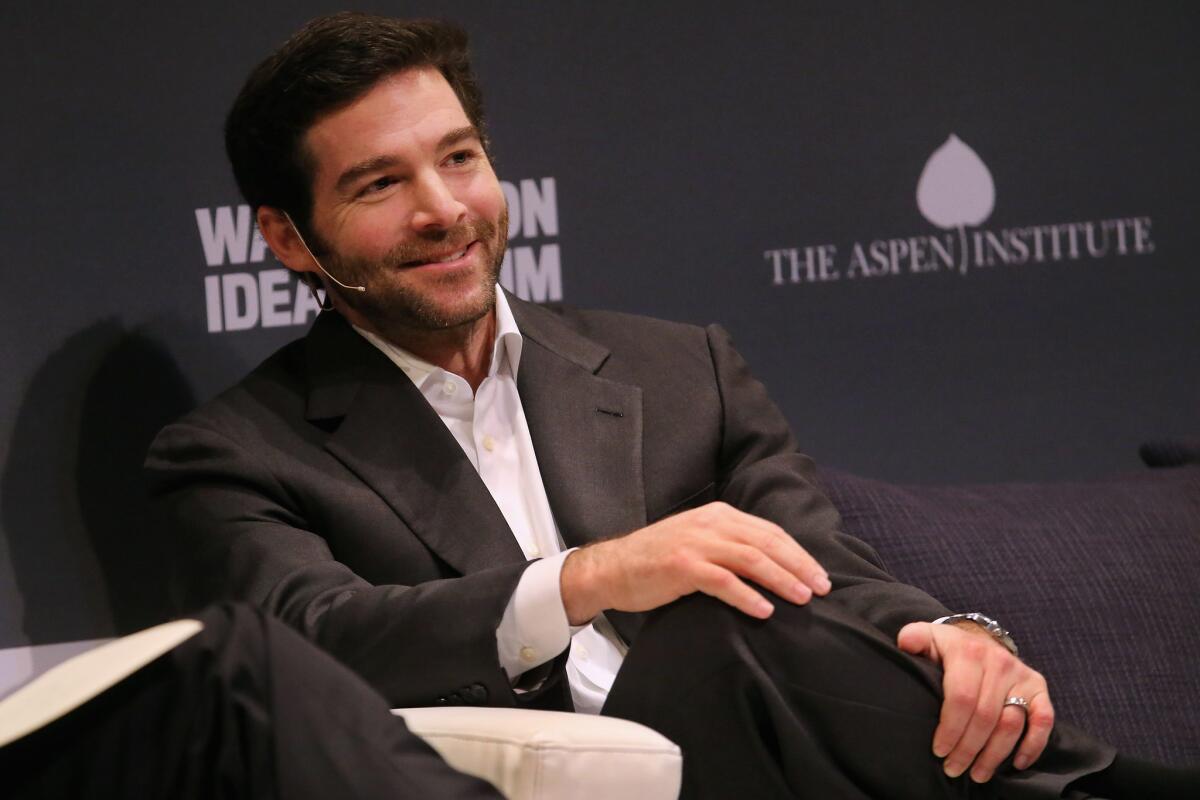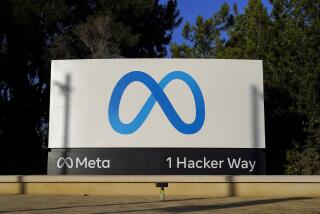LinkedIn agrees to pay $13 million in ‘spam’ settlement

LinkedIn Chief Executive Jeff Weiner participates in a question-and-answer interview in October.
- Share via
LinkedIn Corp. has agreed to pay $13 million to settle a class-action lawsuit alleging that the social network sent too many emails to potential connections without members’ consent.
The settlement applies to LinkedIn members who between Sept. 17, 2011, and Oct. 31, 2014, used the “Add Connections” feature, which allows people to import their email contacts lists and send invitations to connect on LinkedIn.
According to the lawsuit, LinkedIn repeatedly “spammed” the owners of those email addresses if they did not respond by sending up to two reminder emails. LinkedIn members who chose to use the “Add Connections” service did not consent to sending those follow-up emails, according to the lawsuit.
SIGN UP for the free California Inc. business newsletter >>
The money that Mountain View, Calif.-based LinkedIn will pay as part of the settlement will go into a fund that will be used, in part, to pay affected users.
Plaintiffs named in the lawsuit could receive up to $1,500, if approved by the court. The payment for people who submit individual claims depends on the number of claims received. LinkedIn members who were affected can file a claim by Dec. 14 to be part of the settlement.
------------
FOR THE RECORD:
LinkedIn settlement: In the Oct. 7 Business section, an article about the settlement of a “spam” lawsuit against social networking site LinkedIn said that each user could receive as much as $1,500. It is the plaintiffs named in the lawsuit who could receive up to $1,500, if approved by the court. The payment for people who submit individual claims depends on the number of claims received.
------------
LinkedIn did not admit wrongdoing in the settlement, but said it would revise its disclosures and clarify that two reminder emails will be sent as part of the “Add Connections” service. By the end of the year, the company said it would provide an option to stop reminders from being sent by canceling the connection invitation.
“We decided to resolve this case so that we can put our focus where it matters most: finding additional ways to improve our members’ experiences on LinkedIn,” the company said in a statement.
For more business news, follow @smasunaga.
MORE BUSINESS NEWS:
VW to angry owners: Want cash to buy another one?
American Apparel hangs on to its made-in-America model — by a thread
Agency targets the fine print preventing customers from joining class actions
More to Read
Inside the business of entertainment
The Wide Shot brings you news, analysis and insights on everything from streaming wars to production — and what it all means for the future.
You may occasionally receive promotional content from the Los Angeles Times.











